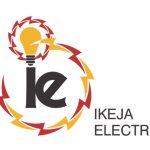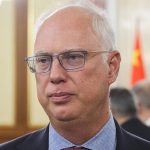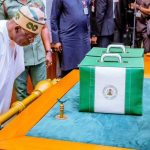Economy
Rates to Crash as N1.4tr Hits Market This Week
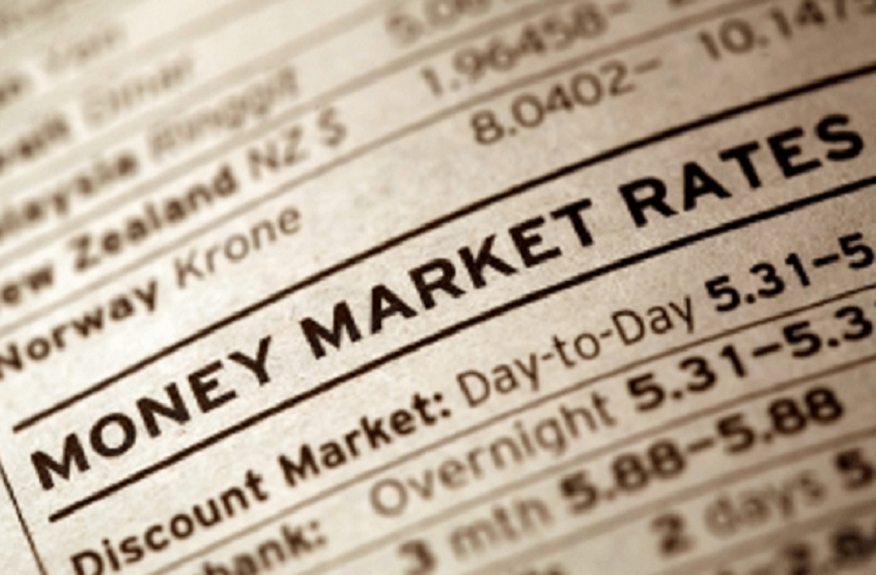
By Modupe Gbadeyanka
The interbank lending rate is expected to decline this week as a result of the huge amount of liquidity hitting the market.
A total of N1.36 trillion will hit the market of which N551.36 billion is of maturing treasury bills via both the primary and secondary markets, while N812.76 billion is from the federally collected revenue distributed by FAAC.
This N1.4 trillion inflows will boost financial system liquidty and result in a corresponding downward trend in NIBOR, analysts at Cowry Asset said in their weekly report.
Last week, the Central Bank of Nigeria (CBN) sold treasury bills worth N24.60 billion through Open Market Operations. The outflows partly offset the inflows from the matured T-bills worth N497.82 billion.
The net inflow mainly contributed to the fall in NIBOR for 3 months and 6 months tenure buckets amid financial system liquidity to 14.31 percent from 15.21 percent and 14.53 percent from 15.24 percent respectively; however, NIBOR for overnight funds and 1 month rose to 25.93 percent from 25.19 percent and 15.86 percent from 15.48 percent respectively.
Meanwhile, NITTY fell for most maturities tracked amid renewed investors’ interest in short term instrument: yields on 3 month, 6 months and 12 months moderated to 13.48 percent from 14.34 percent, 13.93 percent from 14.42 percent and 17.42 percent from 17.55 percent respectively; however, yield on 1 months rose to 15.27 percent from 14.90 percent.
Economy
Tinubu Presents N58.47trn Budget for 2026 to National Assembly
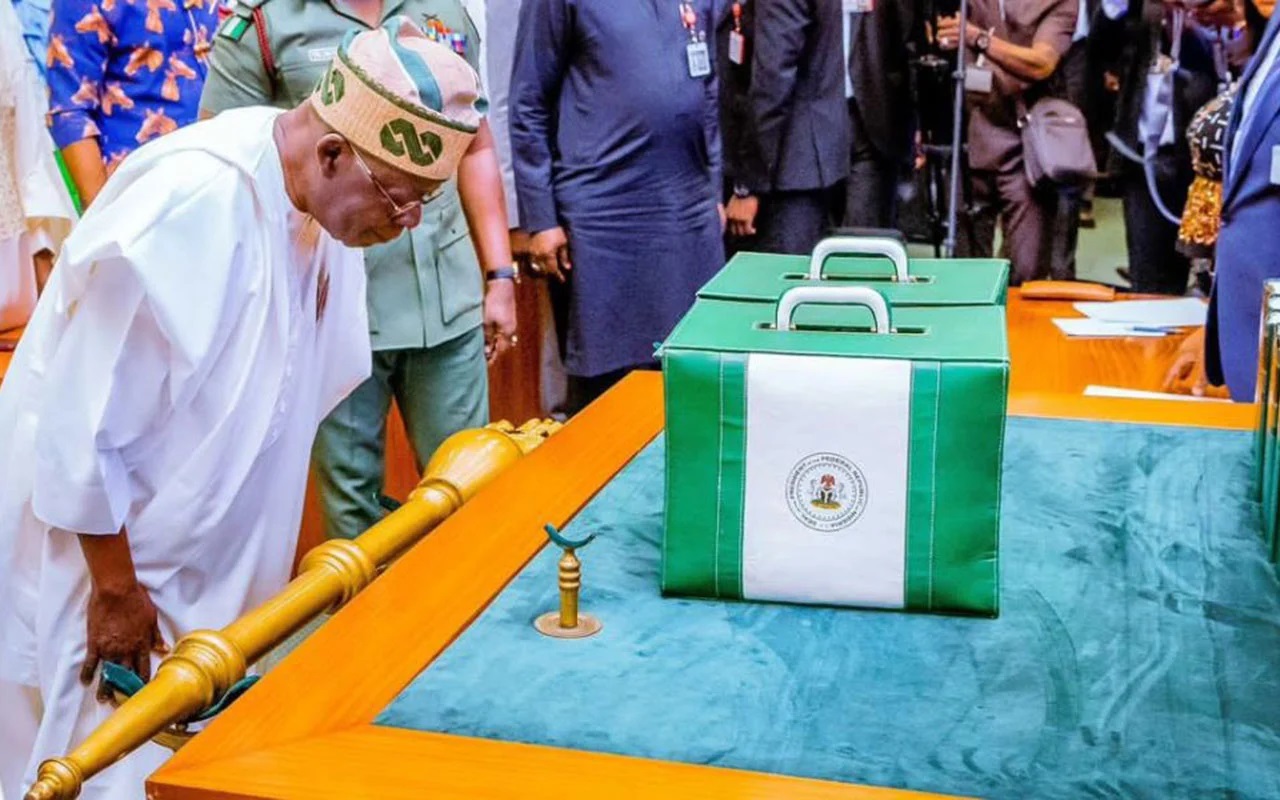
By Adedapo Adesanya
President Bola Tinubu on Friday presented a budget proposal of N58.47 trillion for the 2026 fiscal year titled Budget of Consolidation, Renewed Resilience and Shared Prosperity to a joint session of the National Assembly, with capital recurrent (non‑debt) expenditure standing at 15.25 trillion, and the capital expenditure at N26.08 trillion, while the crude oil benchmark was pegged at $64.85 per barrel.
Business Post reports that the Brent crude grade currently trades around $60 per barrel. It is also expected to trade at that level or lower next year over worries about oil glut.
At the budget presentation today, Mr Tinubu said the expected total revenue for the year is N34.33 trillion, and the proposal is anchored on a crude oil production of 1.84 million barrels per day, and an exchange rate of N1,400 to the US Dollar.
In terms of sectoral allocation, defence and security took the lion’s share with N5.41 trillion, followed by infrastructure at N3.56 trillion, education received N3.52 trillion, while health received N2.48 trillion.
Addressing the lawmakers, the President described the budget proposal as not “just accounting lines”.
“They are a statement of national priorities,” the president told the gathering. “We remain firmly committed to fiscal sustainability, debt transparency, and value‑for‑money spending.”
The presentation came at a time of heightened insecurity in parts of the country, with mass abductions and other crimes making headlines.
Outlining his government’s plan to address the challenge, President Tinubu reminded the gathering that security “remains the foundation of development”.
He said some of the measures in place to tame insecurity include the modernisation of the Armed Forces, intelligence‑driven policing and joint operations, border security, and technology‑enabled surveillance and community‑based peacebuilding and conflict prevention.
“We will invest in security with clear accountability for outcomes—because security spending must deliver security results,” the president said.
“To secure our country, our priority will remain on increasing the fighting capability of our armed forces and other security agencies by boosting personnel and procuring cutting-edge platforms and other hardware,” he added.
Economy
PenCom Extends Deadline for Pension Recapitalisation to June 2027

By Aduragbemi Omiyale
The deadline for the recapitalisation of the Nigerian pension industry has been extended by six months to June 2027 from December 2026.
This extension was approved by the National Pension Commission (PenCom), the agency, which regulates the sector in the country.
Addressing newsmen on Thursday in Lagos, the Director-General of PenCom, Ms Omolola Oloworaran, explained that the shift in deadline was to give operators more time to boost the capital base, dismissing speculations that the exercise had been suspended.
“The recapitalisation has not been suspended. We have communicated the requirements to the Pension Fund Administrators (PFAs), and we expect every operator to be compliant by June 2027. Anyone who is not compliant by then will lose their licence,” Ms Oloworaran told journalists.
She added that, “From a regulatory standpoint, our major challenge is ensuring compliance. We are working with ICPC, labour and the TUC to ensure employers remit pension contributions for their employees.”
The DG noted that engagements with industry operators indicated broad acceptance of the policy, with many PFAs already taking steps to raise additional capital or explore mergers and acquisitions.
“You may see some mergers and acquisitions in the industry, but what is clear is that the recapitalisation exercise is on track and the industry agrees with us,” she stated.
PenCom wants the PFAs to increase their capital base and has created three categories, with the first consists operators with Assets Under Management of N500 billion and above. They are expected to have a minimum capital of N20 billion and one per cent of AUM above N500 billion.
The second category has PFAs with AUM below N500 billion, which must have at least N20 billion as capital base.
The last segment comprises special-purpose PFAs such as NPF Pensions Limited, whose minimum capital was pegged at N30 billion, and the Nigerian University Pension Management Company Limited, whose minimum capital was fixed at N20 billion.
Economy
Three Securities Sink NASD Exchange by 0.68%

By Adedapo Adesanya
Three securities weakened the NASD Over-the-Counter (OTC) Securities Exchange by 0.68 per cent on Thursday, December 18.
According to data, Central Securities Clearing System (CSCS) Plc led the losers’ group after it slipped by N2.87 to N36.78 per share from N39.65 per share, Golden Capital Plc depreciated by 77 Kobo to end at N6.98 per unit versus the previous day’s N7.77 per unit, and FrieslandCampina Wamco Nigeria Plc dropped 19 Kobo to sell at N60.00 per share versus Wednesday’s closing price of N60.19 per share.
At the close of business, the market capitalisation lost N16.81 billion to finish at N2.147 billion compared with the preceding session’s N2.164 trillion, and the NASD Unlisted Security Index (NSI) declined by 24.76 points to 3,589.88 points from 3,614.64 points.
Yesterday, the volume of securities bought and sold increased by 49.3 per cent to 30.5 million units from 20.4 million units, the value of securities surged by 211.8 per cent to N225.1 million from N72.2 million, and the number of deals jumped by 33.3 per cent to 28 deals from 21 deals.
Infrastructure Credit Guarantee Company (InfraCredit) Plc remained the most traded stock by value with a year-to-date sale of 5.8 billion units valued at N16.4 billion, followed by Okitipupa Plc with 178.9 million units transacted for N9.5 billion, and MRS Oil Plc with 36.1 million units worth N4.9 billion.
Similarly, InfraCredit Plc ended as the most traded stock by volume on a year-to-date basis with 5.8 billion units traded for N16.4 billion, trailed by Industrial and General Insurance (IGI) Plc with 1.2 billion units sold for N420.7 million, and Impresit Bakolori Plc with 536.9 million units exchanged for N524.9 million.
-

 Feature/OPED6 years ago
Feature/OPED6 years agoDavos was Different this year
-
Travel/Tourism9 years ago
Lagos Seals Western Lodge Hotel In Ikorodu
-

 Showbiz3 years ago
Showbiz3 years agoEstranged Lover Releases Videos of Empress Njamah Bathing
-

 Banking7 years ago
Banking7 years agoSort Codes of GTBank Branches in Nigeria
-

 Economy3 years ago
Economy3 years agoSubsidy Removal: CNG at N130 Per Litre Cheaper Than Petrol—IPMAN
-

 Banking3 years ago
Banking3 years agoFirst Bank Announces Planned Downtime
-

 Banking3 years ago
Banking3 years agoSort Codes of UBA Branches in Nigeria
-

 Sports3 years ago
Sports3 years agoHighest Paid Nigerian Footballer – How Much Do Nigerian Footballers Earn






